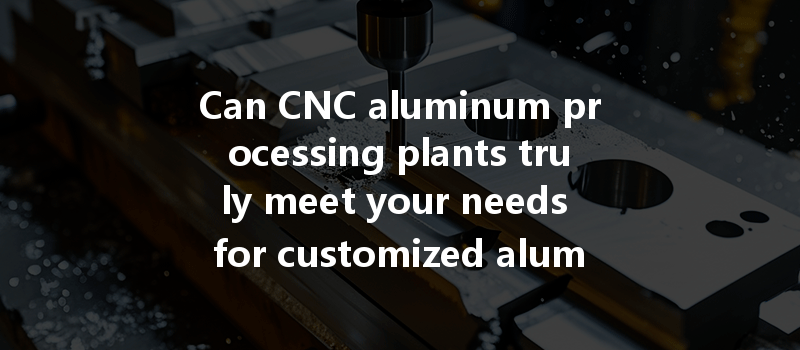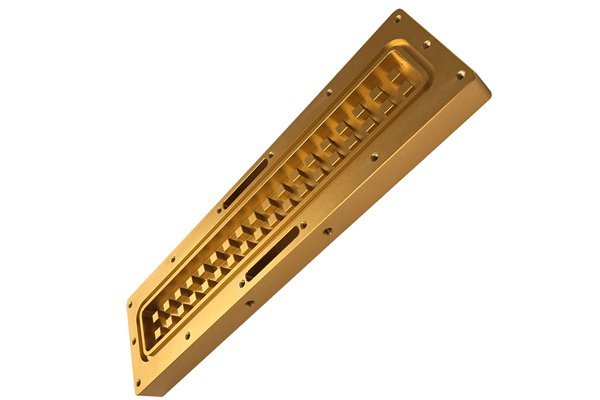Did you know that the global CNC machining market is projected to reach over $100 billion by 2025? This tremendous growth is primarily driven by the increasing demand for high-precision manufacturing across various industries such as automotive, aerospace, and electronics. Among the myriad of materials utilized in CNC machining, aluminum stands out due to its excellent strength-to-weight ratio, corrosion resistance, and ability to be easily machined into complex shapes. This raises a crucial question for manufacturers and engineers alike: Can CNC aluminum processing plants provide the customized aluminum parts processing solutions you need?
While many CNC machining facilities exist, not all are equipped to handle the nuances of customized production. In this blog, we will explore tailored solutions that CNC processing plants can offer, discuss the capabilities that distinguish them, and present actionable strategies to help you identify and partner with the right provider for your needs.
Understanding Aluminum Machining
The Significance of Aluminum in Manufacturing
Aluminum is one of the most versatile metals available. Its light weight, coupled with exceptional mechanical properties, makes it ideal for a wide range of applications—from structural components in buildings to intricate parts in the automotive industry. It’s no wonder that many industries are increasingly turning to aluminum for customized machining solutions.
What is CNC Machining?
CNC (Computer Numerical Control) machining refers to a technology that uses computer software to control machine tools like lathes and mills. With the right algorithms and precise programming, CNC machines can create parts with remarkable consistency and accuracy. This method is indispensable in the production of custom aluminum parts, as it allows for complex geometries and dimensions to be achieved repeatedly.
The Customization Challenge
Why Customization Matters
Customization allows businesses to create unique products tailored to their specific needs, enhancing user experience and maintaining competitive advantage. This is especially critical in sectors like automotive and aerospace, where standard components often fall short of performance requirements.
Common Customization Needs for Aluminum Parts
Solutions Offered by CNC Aluminum Processing Plants
Modern CNC aluminum processing plants utilize high-tech machinery capable of performing a variety of operations such as milling, turning, and drilling. This can include:
Every project comes with unique specifications. A well-structured CNC processing plant can offer:
Aluminum comes in various grades, each with distinct properties. Processing plants that understand these differences can:

Evaluating Potential CNC Aluminum Processing Partners
Choosing the right partner can significantly affect your project’s success. Keep the following criteria in mind:
Look for facilities that specialize in aluminum machining, as experience often correlates with expertise. Ask for case studies or examples of previous projects to assess their capabilities.
Quality control is vital in CNC machining. Inquire about their inspection processes and certifications (e.g., ISO 9001), as these can provide reassurance about the quality of work.
A responsive and communicative partner can make it easier to address challenges as they arise. Establish how they communicate project updates and handle inquiries.
Strategies for Successful Collaboration
Collaboration between your team and the CNC processing facility is key to achieving optimal results. Here are some strategies to consider:
Prepare detailed design specifications for your parts, including dimensions, tolerances, and material grades. This clarity will help your CNC partner deliver exactly what you need.
Consider using prototyping as a way to confirm design and material choices before full-scale production. CNC facilities often have the capacity to create prototype parts quickly, allowing for adjustments.
Encourage open lines of communication for feedback throughout the process. This practice allows for any necessary changes to be made more efficiently.
Addressing Common Concerns
Customization often comes with higher costs. However, this investment can yield greater returns through improved product performance and customer satisfaction. Discuss pricing models with your partner, exploring options like bulk discounts.
While customization can affect lead times, many CNC processing plants have streamlined workflows to help mitigate delays. Engage in upfront discussions about production timelines to set realistic expectations.
CNC machining can create residual stresses that may affect the final product’s performance. Work with your partner to implement post-processing techniques, such as heat treatment, to alleviate these issues.
As the world of manufacturing continues to evolve, the demand for precision-engineered, customized aluminum parts is more significant than ever. CNC aluminum processing plants offer tailored solutions that can accommodate a vast range of specifications and complexities. By understanding what these facilities can provide and how to choose the right partner, you can ensure that your unique manufacturing needs are met.
In summary, consider the advanced technologies, customization capabilities, and strategic partnerships highlighted in this blog. The insights shared here not only guide you to find the right CNC processing plant but also underscore the critical role that customized aluminum parts play in enhancing product performance across industries.
As you navigate the CNC aluminum machining landscape, remember the importance of collaboration, clear communication, and adaptability. Embracing these elements will ensure you maximize the benefits of your partnership, enabling your projects to succeed in today’s competitive environment. Evaluating your machining solutions is not just a necessity—it’s a strategic advantage worth considering for future endeavors.






